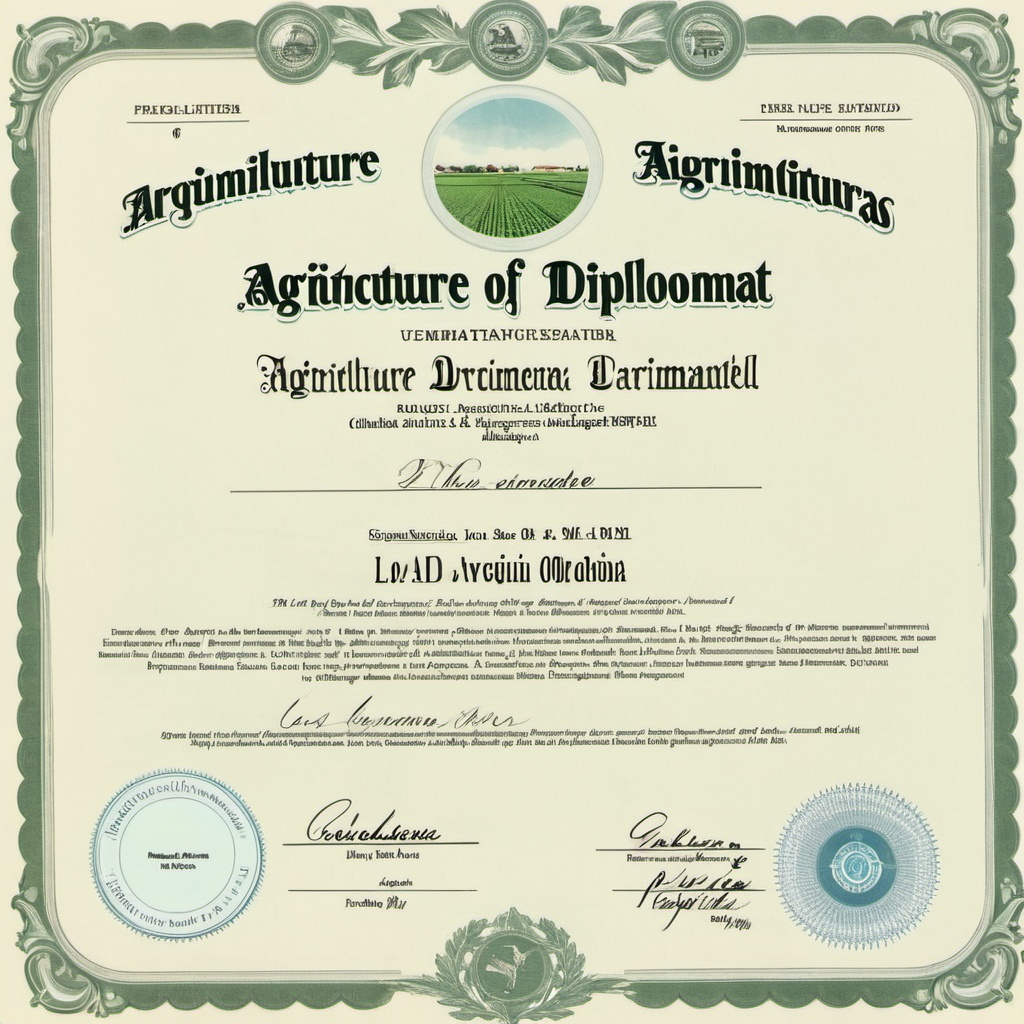
What Is an Agriculture Diploma?
An agriculture diploma is a specialized educational program designed to provide students with foundational knowledge and practical skills in agricultural science and management. This diploma prepares individuals for various roles in the agriculture industry, focusing on topics such as crop production, animal husbandry, and farm management.
Key Components of an Agriculture Diploma Program
Agriculture diploma programs typically cover a broad range of topics essential for a successful career in agriculture. Key components include:
- Crop Production: Students learn about the principles of growing various crops, including soil management, pest control, and crop rotation techniques.
- Animal Husbandry: The program includes training in the care and management of livestock, focusing on nutrition, breeding, and health management.
- Farm Management: Students are taught about the operational aspects of running a farm, including financial management, marketing strategies, and equipment maintenance.
- Sustainable Practices: Emphasis on sustainable farming practices to promote environmental conservation and reduce the impact of farming on natural resources.
- Agricultural Technology: Introduction to modern technologies used in agriculture, such as precision farming tools, irrigation systems, and data management software.
Skills Developed Through an Agriculture Diploma
An agriculture diploma helps students develop a range of skills that are crucial for success in the agricultural sector:
- Technical Expertise: Knowledge of agricultural techniques, machinery, and technologies.
- Problem-Solving: Ability to address challenges related to crop and livestock management.
- Analytical Skills: Competence in analyzing agricultural data and making informed decisions.
- Management Skills: Skills in managing resources, finances, and operations on a farm or agricultural business.
- Communication: Effective communication with stakeholders, including farmers, suppliers, and customers.
Career Opportunities with an Agriculture Diploma
Graduates with an agriculture diploma have various career paths available to them, including:
- Farm Manager: Overseeing the daily operations of a farm, including crop and livestock management.
- Agricultural Technician: Providing technical support and expertise in areas such as soil testing and pest control.
- Extension Officer: Working with farmers to provide advice and support on best practices and new technologies.
- Agricultural Sales Representative: Selling agricultural products and services to farmers and agribusinesses.
- Agricultural Consultant: Offering specialized advice on improving agricultural practices and farm efficiency.
Admission Requirements for an Agriculture Diploma
Admission requirements for agriculture diploma programs may vary by institution but generally include:
- Educational Background: A high school diploma or equivalent is typically required.
- Prerequisite Courses: Some programs may require specific high school courses in science or mathematics.
- Application Process: Submission of an application form, academic transcripts, and, in some cases, an interview or entrance exam.
Duration and Structure of an Agriculture Diploma Program
Agriculture diploma programs usually have a duration of one to two years, depending on the institution and the specific program. The structure often includes:
- Classroom Instruction: Courses covering theoretical aspects of agriculture.
- Practical Training: Hands-on experience through laboratory work, field trips, and internships.
- Project Work: Completion of projects related to agricultural practices or research.
The Impact of an Agriculture Diploma on the Industry
An agriculture diploma equips individuals with the knowledge and skills necessary to address modern challenges in agriculture. Graduates contribute to improving agricultural productivity, implementing sustainable practices, and enhancing food security.